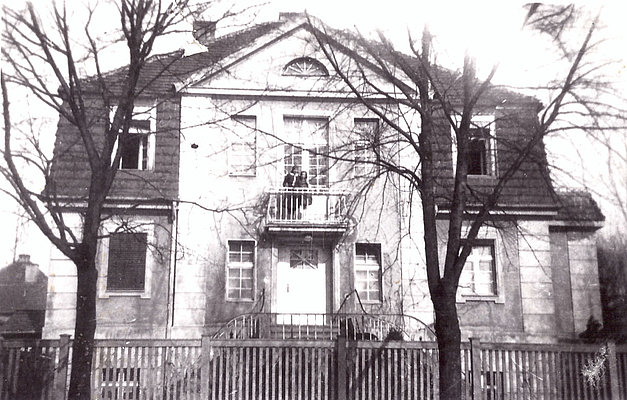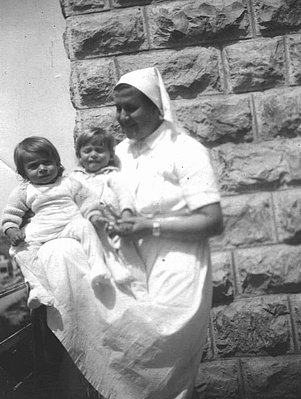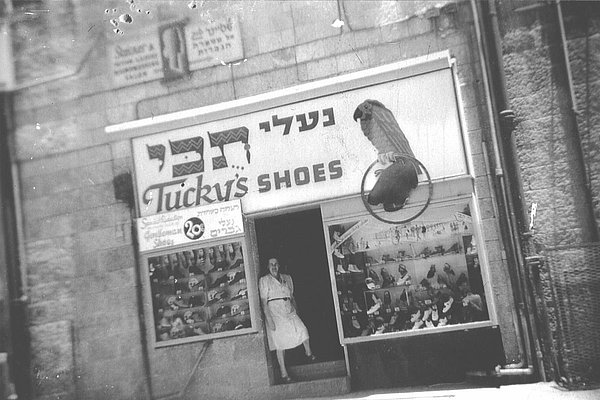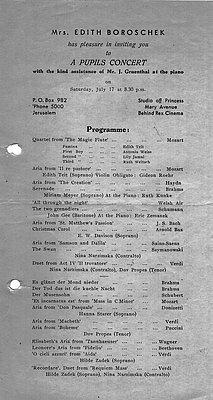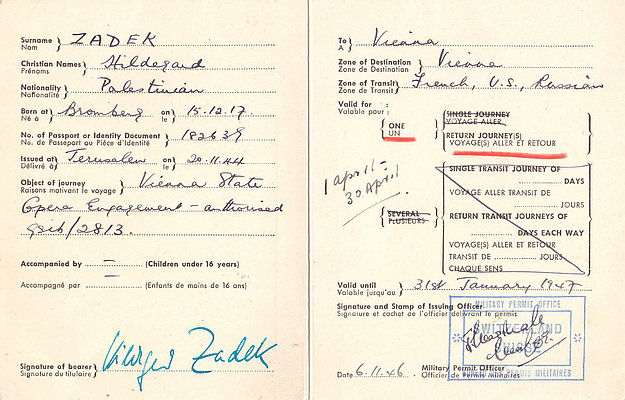Celebrating her 95th birthday, Hilde Zadek looked back with gratitude and pride, keenly aware that her story might have been very different. “Nothing really fits together, and yet I have always lived life positively.”
Born in the Central European town of Bromberg (now Bydgoszcz) in 1917, Hilde was the eldest child of Else and Alex Zadek, whose family earned a modest living in the leather trade. After WWI, when Bromberg became Polish, most of its Jewish population left, and the Zadek family relocated to Stettin, which was still part of Germany. Arriving penniless, “with just a rucksack and no funds,” Alex soon created a 4-storey shoe “emporium,” and family’s circumstances improved dramatically. They built a beautiful villa next to a park, Hilde and her sisters Ruth and Edith went to a good school; they enjoyed ski holidays, summers by the sea, and seeing their grandparents, who had soon joined them. But in 1934, Hilde’s carefree childhood came to an abrupt end.
In reaction to anti-Semitic taunts at school, she knocked out a classmate’s front teeth. “I had to leave immediately, or risk arrest.” 16-year old Hilde fled alone to Berlin, then Munich, where she trained as a neonatal nurse and learnt practical household skills – “washing, cooking, ironing, sewing, cleaning” – in preparation for “Hakhsharah,” emigration to Palestine. In 1935, unhappy and apprehensive, lonely and bereft, Hilde boarded a ship bound for Haifa.
Arriving in Haifa, Hilde was relieved to see an employment agency on the dock. She found work in a nearby children’s home: unpaid, but at least she was assured a camp bed in the noisy dormitory and a daily ration of porridge. As soon as possible, she applied for a nursing course in Jerusalem and, at just 20, became head nurse of the maternity ward of Bikur Cholim Hospital.
The energetic founder of the hospital’s paediatric ward, Helena Kagan (from Tashkent), also happened to be a trained pianist, married to the violinist Emil Hauser, formerly of the Budapest String Quartet. The couple had recently founded the Palestine Conservatoire of Music. It was Dr Kagan who introduced Hilde to the world of music.
Meanwhile, back in Stettin, the family was suffering persecution by the Nazis. Hilde’s father was interred for several weeks in Sachsenhausen concentration camp and forced to sell his business. In 1938, Hilde and her sister Ruth managed to get most of the family out of Nazi-Germany and safely to Palestine.
To support the family, Alex opened a children’s shoe shop (the first in Jerusalem), and Hilde worked long hours as salesperson. In the evenings, she studied singing at the Conservatoire. “I knew: singing was the only thing that mattered to me in life.”
After five years, Hilde graduated from the Conservatoire, and immediately after the war, she won a scholarship to continue her studies in Zurich.
The newly founded Conservatory taught only in the evenings. Like Hilde, all the students had full-time jobs to cover their expenses. Their teachers were first-class musicians from all over Europe who had escaped to Palestine. The curriculum was unconventional: "I heard Stravinsky before I heard Bach."
Soon, Hilde was performing recitals across the region, accompanied by her professor Josef Gruenthal (better known as Josef Tal, one of Israel’s major composers). Hungarian-born Rose Pauly was an international star when she came to Palestine and took Hilde under her wing. Hilde remained close friends with Tal and Pauly for the rest of their lives.
There was no opera house or dedicated opera training in Jerusalem, and recital conditions were often makeshift; but the experience provided a unique foundation. Crucially, Hilde learnt to keep her focus, to seize every opportunity and never to succumb to doubt or fear. Hilde Zadek would become the first Israeli-trained singer to forge an international reputation in Europe.
Upon graduating in Jerusalem, Hilde was awarded a scholarship to continue her studies at the Zurich Conservatory. She managed to get passage on a ship transporting British troops from Alexandria, disembarked in the war-ravaged south of France, and made her way inland. A man in Jerusalem had given Hilde a letter for his daughter in Zurich. She helped Hilde find work as an au pair, with a room in an attic.
Hilde’s teacher at the Conservatory was the soprano Ria Ginster, a Lieder singer who had left Germany in 1938. “A wonderful singer and more than anything, a wonderful person.” It was thanks to Ria Ginster that Hilde was able to overcome some of her “hard feelings” towards Germans.
Hilde’s first-day acquaintance stayed in touch, and one day, she invited Hilde to meet her godfather Franz Salmhofer, director of the Vienna State Opera. After an impromptu recital then-and-there in the sitting room, Salmhofer told Hilde to stop by some time… “It took me from August 1946 to January 1947 to get the 13 stamps from the different occupying forces before I could make the journey.”





